
Many of the VHS-classes engage in some sort of social activity during the semester. In our case having dinner together (like many other classes do) is not an option, since class ends at 11:45 and most of us have to get home rightaway. Therefore we have decided to go on an excursion to Schweinfurt to see the Carl Spitzweg exhibition at the Georg Schäfer museum. We decided to go there by train. Since some of us live closer to Nuremberg than others, we decide to meet at the subway-station "Herrnhütte" at 9:30.
Wednesday, July 17th, (almost) everybody was at the agreed meeting-point
at 9:30. The only one missing was yours truly. Considering they were
on a pretty tight schedule and the subway runs every 9 minutes, the
rest of the group decided to go ahead without me. They figured I would
be able to get to the railway station on my own. Luckily (for me) they
were right.
The first stage to get to Schweinfurt was to take the train from the
main railway station in Nuremberg to Bamberg, switch trains there for
the final stage to Schweinfurt.
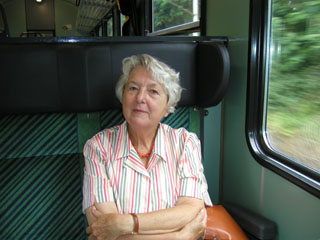
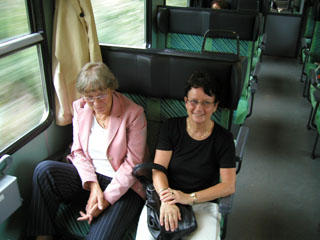
On the way to Bamberg I decide to take everybodies picture. Marie-Luise decides that she looks better without her glasses.
Ingrid is apparently too shy to look into the camera, Holly doesn't have any problem with that.
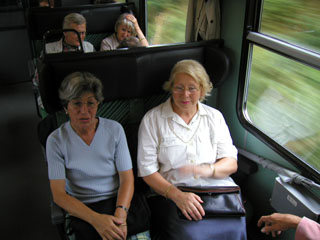
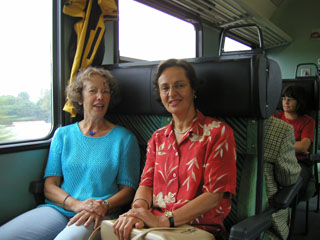
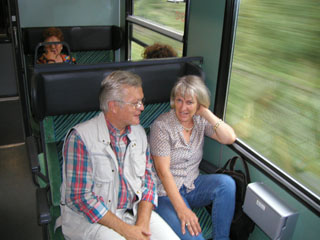
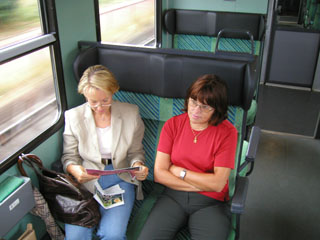
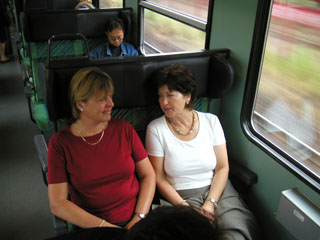
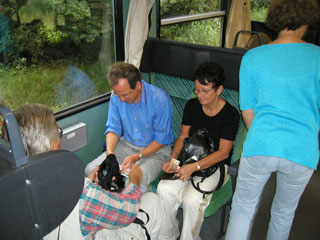
Helmut, who was responsible for most of our day, had bought tickets for all of us (train & museum).
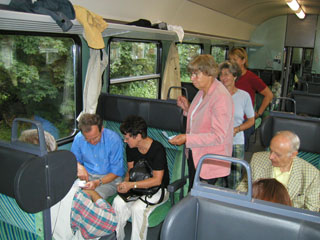
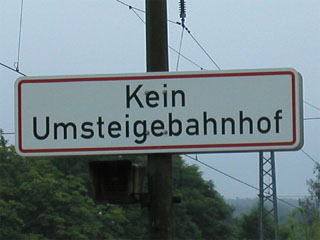
Since he is no philanthropist, now is the time for all of us to pay him back.
Around 11:55 we arrive at the train station of Schweinfurt, which is clearly marked as a station where you can't change trains.
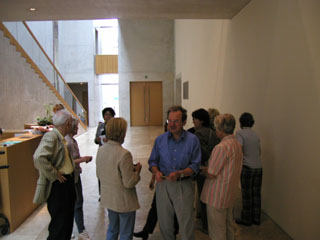
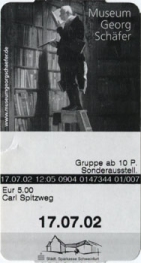

In the "Museum Georg Schäfer", Helmut distributes the admission tickets.
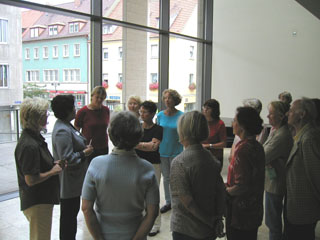
Before we start the tour of the museum, Mrs. Colleen Reuß (our guide) tells us a little bit more about the museum building. It was built especially for the exhibiton of the Georg Schäfer collection. It is a new building that was opened on September 23rd 2000, which happened to be the exact same day that Carl Spitzweg died.
For a short biograpy of Carl Spitzweg click here
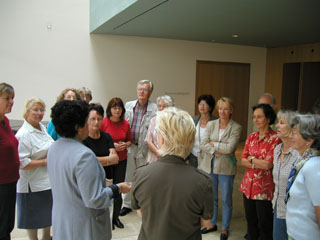
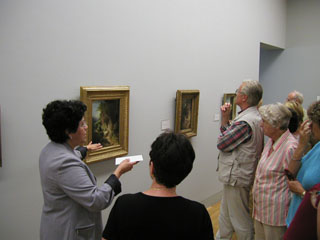
Using several paintings as an example, Mrs. Reuß tells us something about the composition, the use of light and the (usually very small) side-issues of the Spitzweg paintings.
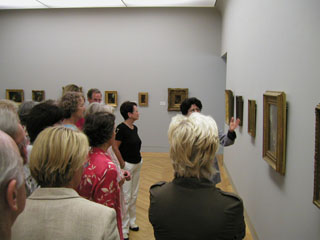
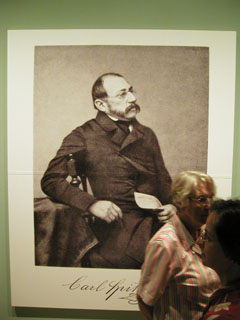
She also shows us the difference between his first and his later work and tells us that Spitzweg would make several versions of the same painting if it had a theme that sold very well.
A photograph of Carl Spitzweg.
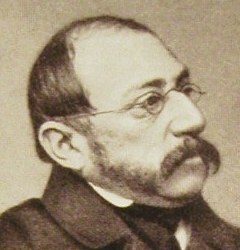
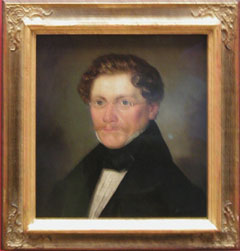
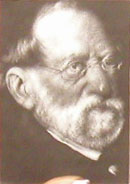
On the left and right photographs of Carl Spitzweg at different ages.
In the middle a selfportrait, which clearly shows that he was not all
too happy with his appearance and felt the need for some beautification.
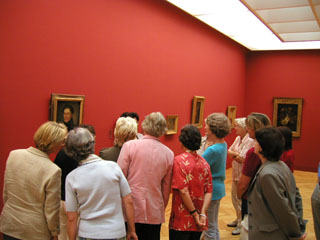
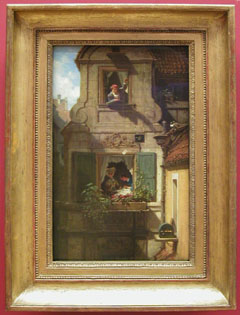
As a coincidence I photographed the painting that's also on the admission tickets.
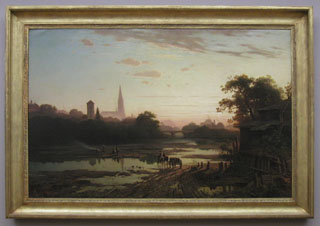
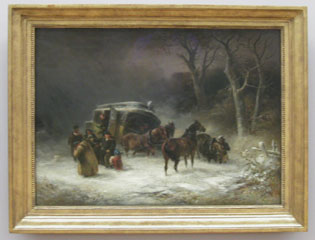
A few more Spitzweg paintings.
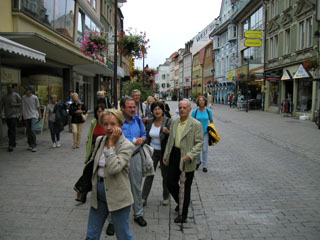
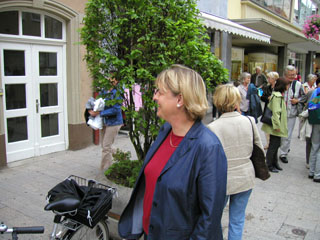
After we finished lunch (which to our astonishment was not included),
we went on our way to the next part of our excursion.
Some of our ladies really love to be photographed.
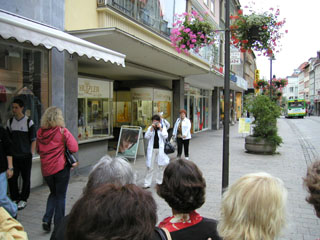
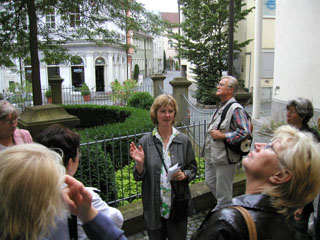
Holly decides to take a group picture.
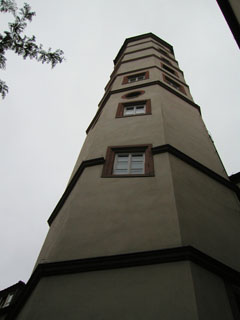
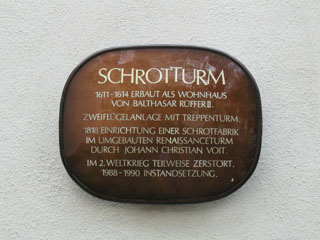
The outside of the "Schrotturm" (grape-shot tower). This
tower was used to produce grape-shot. Melted lead was poured down from
the top of the tower (150 feet high) and cought in a bath of water.
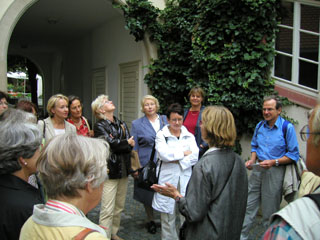
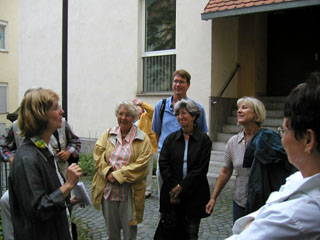
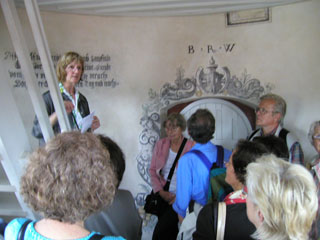
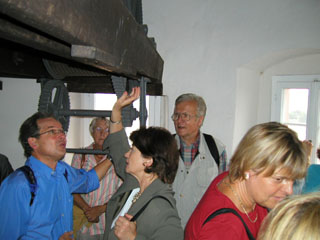
From the highest floor, which can only be reached by climbing the ever more narrow wooden stairs, Mrs. Sünkel shows us the sights of Schweinfurt.
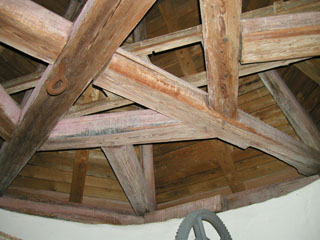
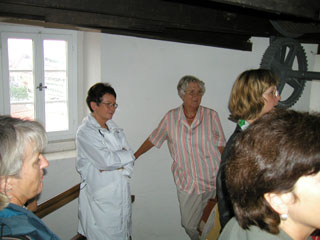
Holly doesn't seem to be too interested in the explanation. Could it be that she is trying to figure out a way to turn this tour into an assignment (like the one we had in the museum)?
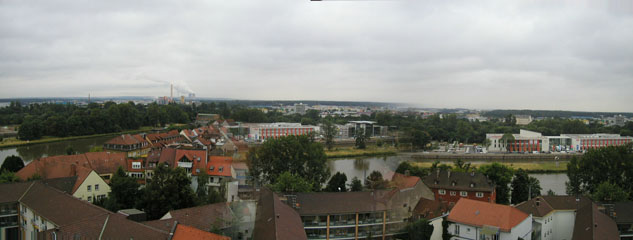
A view over Schweinfurt from the top of the "Schrotturm" in the direction of the river Main.
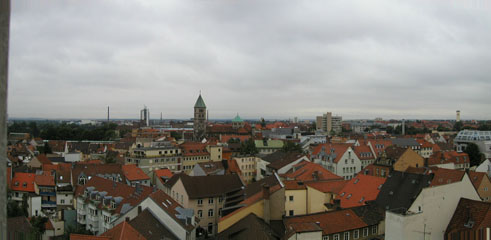
Another view of Schweinfurt in the direction of the city center.
For more information on Schweinfurt and the "Schrotturm"
click here.
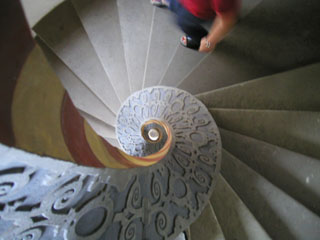
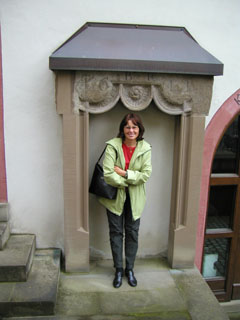
A view down the spiral stairs, which - as a courtesy to the people who are afraid of heigths - doesn't have banisters.
This looks like a watchman's hut, but only short watchmen will fit under here.
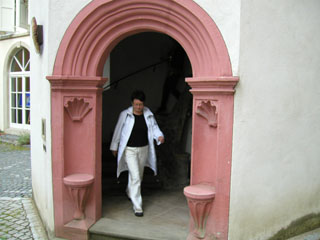
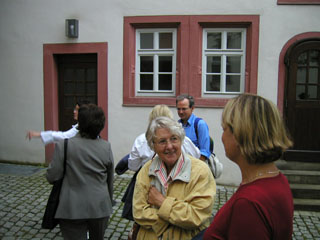
It has taken a while, but finally Holly has reached ground level.
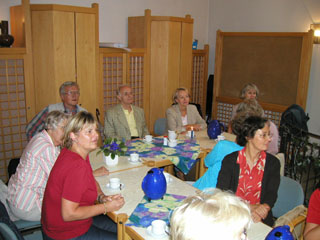
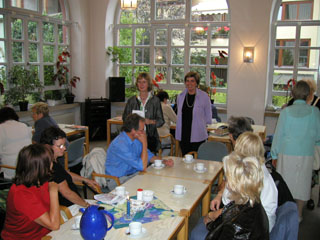
After the tour we are invited for coffee and cake in the senior citizens
club.
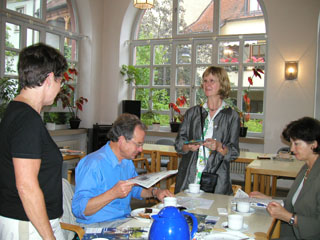
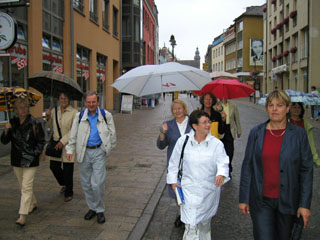
As a token of our appreciation, Holly hands over a gift for Mrs. Sünkel.
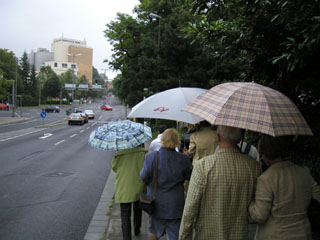
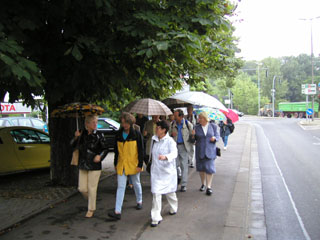
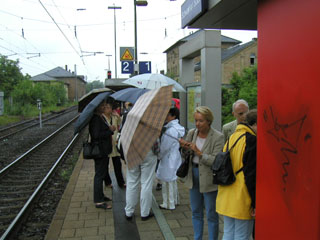
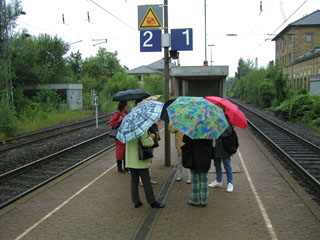
The umbrellas make this look like a closed meeting.
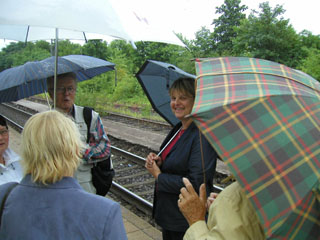
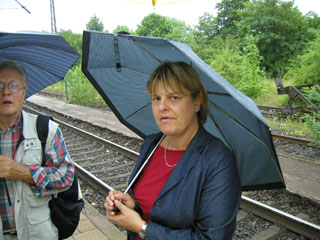
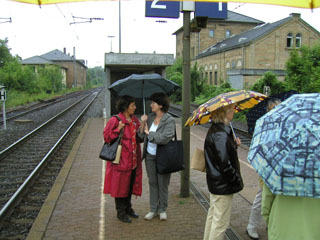
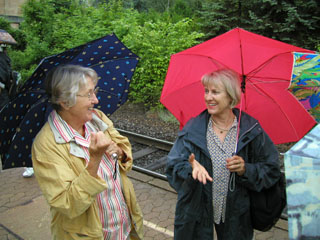
As it turned out, the train was a little delayed which kept us in suspense
whether or not we were going to make it in time for the connection in
Bamberg. It was a close call, but that was mainly caused by a bunch
of people who weren'r really paying attention and wanted to move to
the wrong platform.
Around 19:00 hrs we were back at Nuremberg's main railway station and
after a quick glance of the interior of the "Blaue Adler"
we took the subway back to "Herrnhütte", where we arrived
around 19:30 hrs. After saying goodbye to everyone we went our separate
ways.